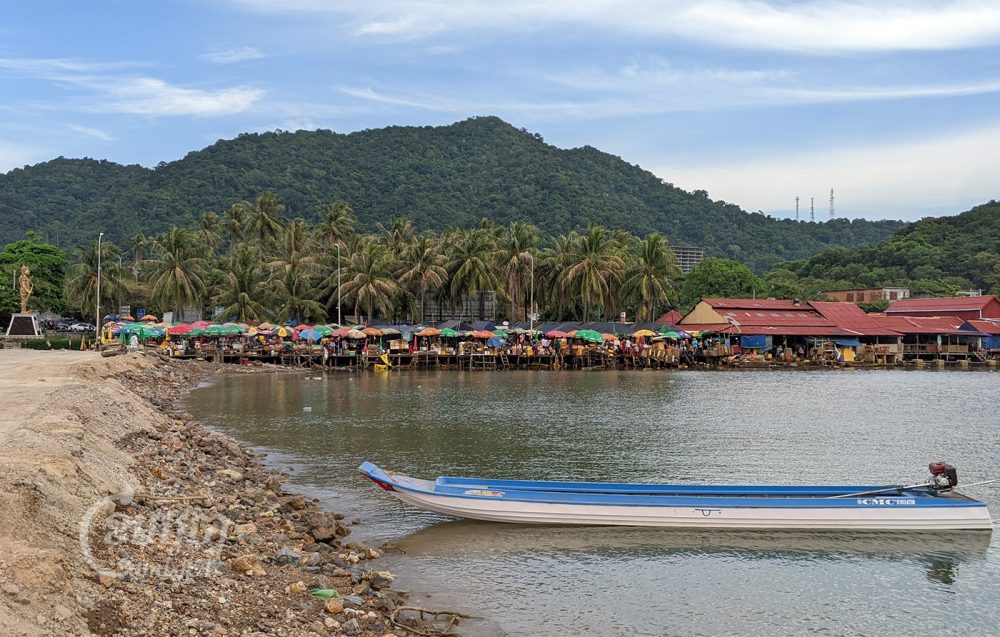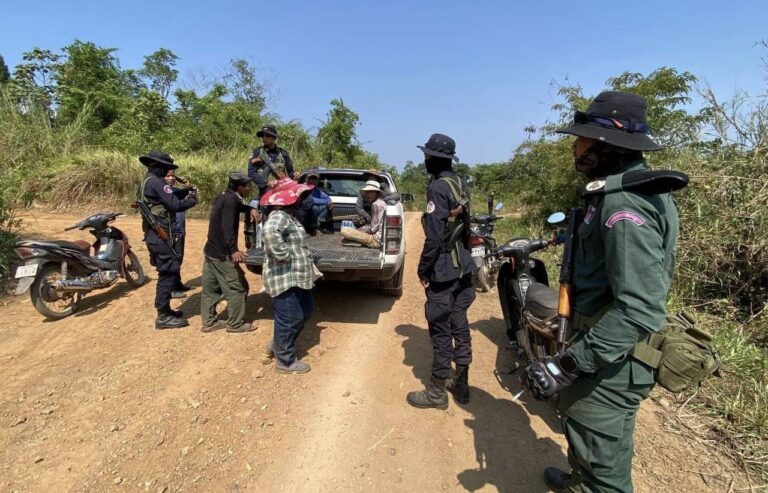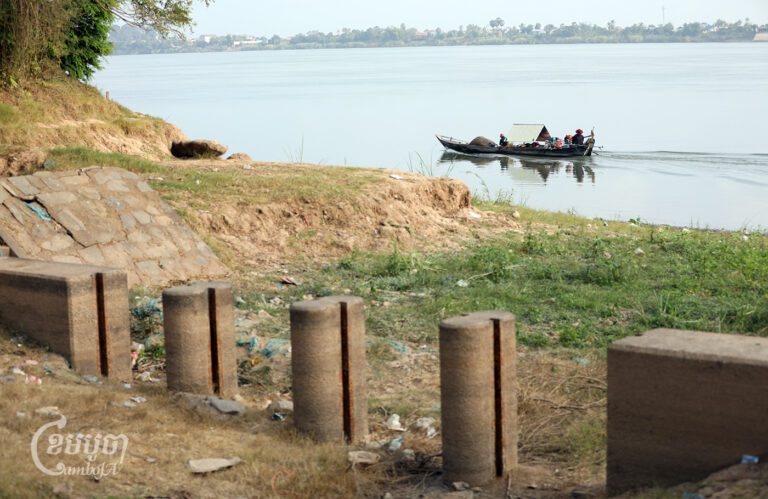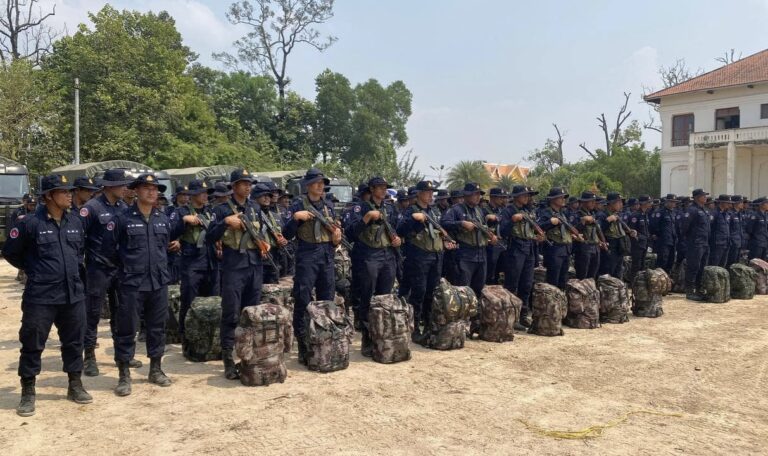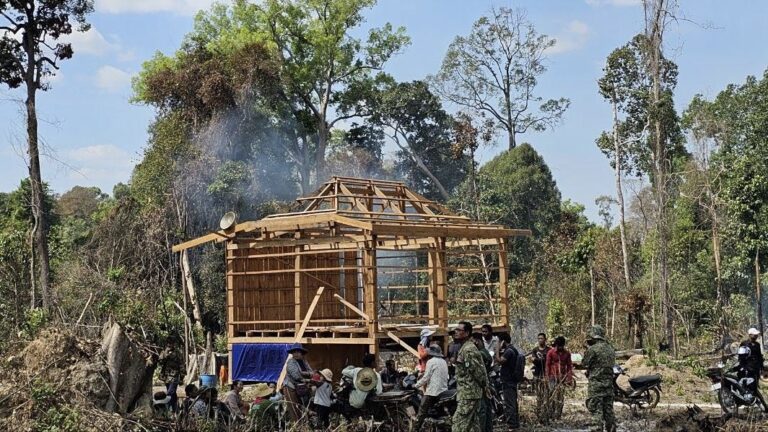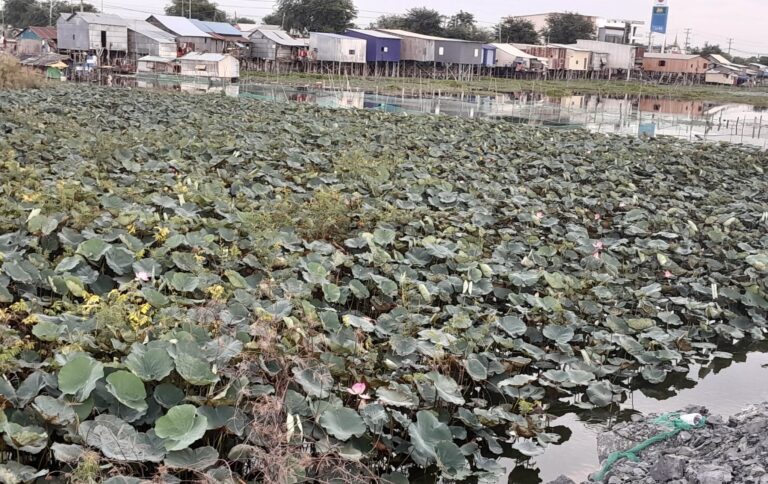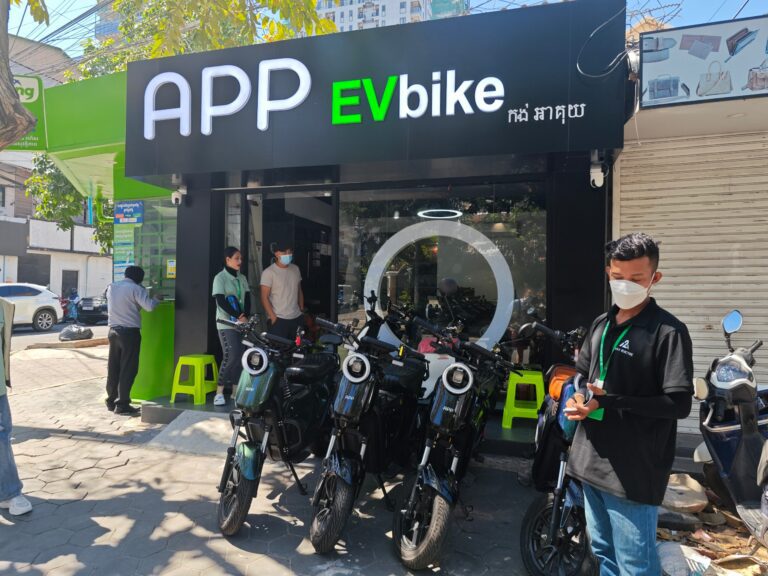Vendors and fishermen in Kep province have expressed their concerns over the development of a new beach as part of a state-owned project, with nearly three kilometers of land being dumped into the sea. They say it’s affecting their businesses and harming natural resources, leaving them at risk of losing their family incomes.
Chhin Chenda, a 34-year-old resident, and her husband have been fishing for six years and she fears that, when the land reclamation is done, the authorities will not allow space for residents to conduct business as before. She says she feels unable to trust what the authorities tell them.
“Our people in the same business have discussed, but we do not know what they [authorities] will do next. Sometimes they tell us that this place is to develop something for us to sell, but when it is ready, it turns out to be something else. It’s not like what they tell us,” she said.
“Because there are a lot of cases. Even the northern part – previously, we were told they would build a wastewater treatment plant, and when they already filled up [the land], it turned out to be a brand coffee shop.”
She added that all the residents of Kep province want development, and enjoy it, but only if it doesn’t harm them or the environment and its natural resources.
“People here are the same. Everyone wants that. Development is the image of our province, but please, the authorities, make it clear what it really is.” She says this is important because not all residents understand that development can destroy the environment, and as such, their livelihoods.
“Please sympathize with the people [so we don’t] lose our natural resources. When it is lost, it will not be easy to regenerate. Please leave natural resources for our younger generation.”
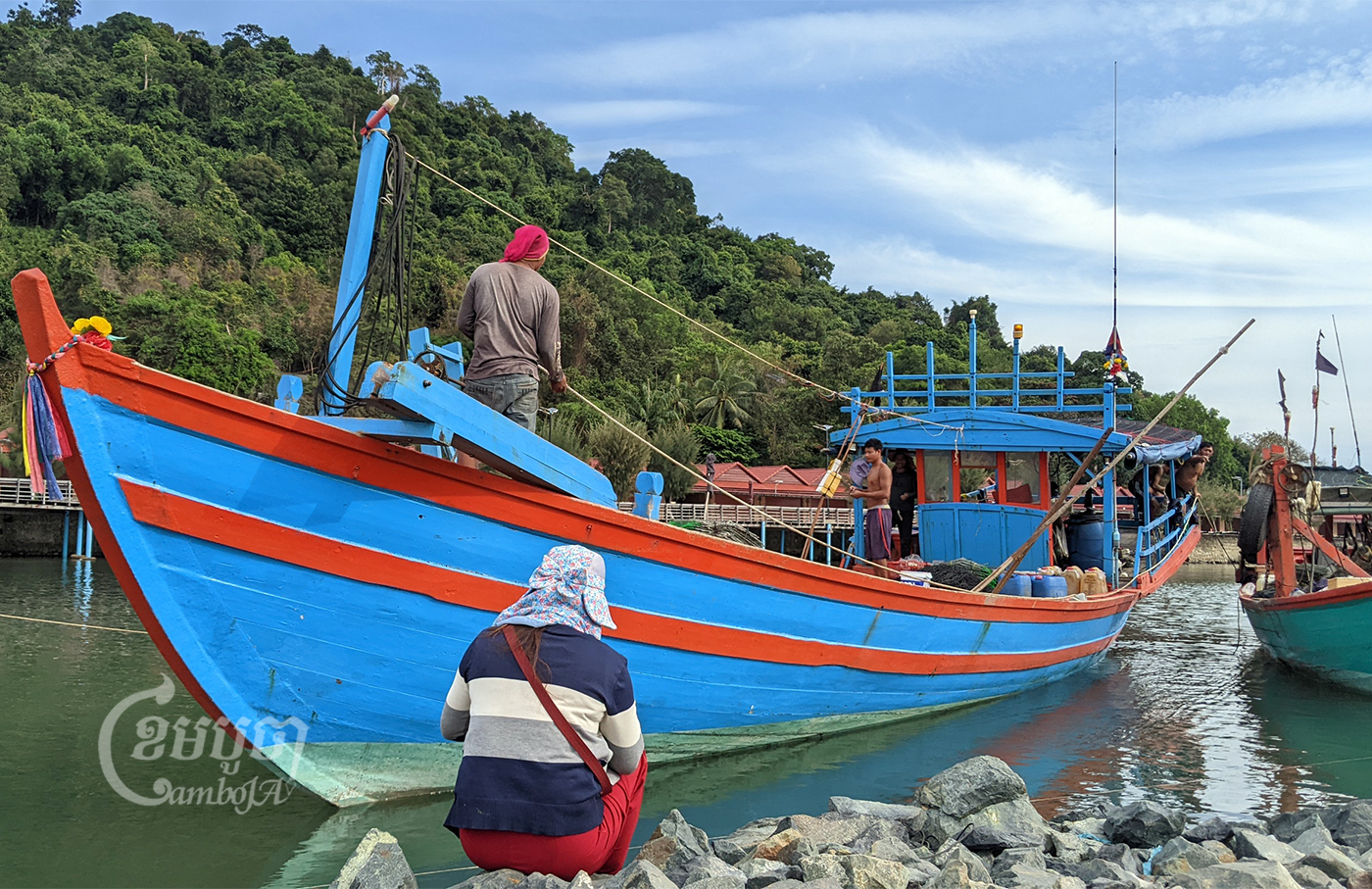
Chenda worries, too, that the landfill covering nearly 3 km of coastline will cause the loss of fish and crab habitats, as they need safe, shallow waters to feed or hatch. She is also concerned about the drainage of wastewater into the sea, if hotels, restaurants, or other entertainment venues are built there without proper drainage systems.
Speaking to CamboJA one evening, Chenda expressed fears that she and her husband wouldn’t know what other jobs to do if they lost their livelihoods – they have been fishing for many years – because of this development. She is already in debt and she has to take care of her children as well as her parents.
Thai Kin, a 27-year-old fisherman and resident of Kep province, was similarly apprehensive about his fishing business for the same reasons.
While preparing his equipment for fishing, he said, “I have been fishing for more than two years and I am also concerned to see the landfilling, but I do not know what to do since they have already filled it in and I am afraid that they will not allow us to dock boats at this location.”
If the authorities were to create a new location to dock, and they were to charge a high price, he would not be able to afford it, as his fishing income is irregular and low. “I will pay if it is a little, and if they charge too much, it is impossible. We earn less than 200.000 riels per day,” he said.
Meanwhile, Meas Raksmey – a seafood seller in Phsar Kdam (crab market) and resident of Kampong Tralach village, in Prey Thom commune – said that this development was worrying as many vendors at Phsar Kdam market rely on selling seafood.
“I think about the risk to my sales. I’m afraid that after they develop, they will evict us from selling at the market. If there is no Phsar Kdam market, 90% of vendors will be affected. It is said that the Phsar Kdam market will be a parking lot,” he said.
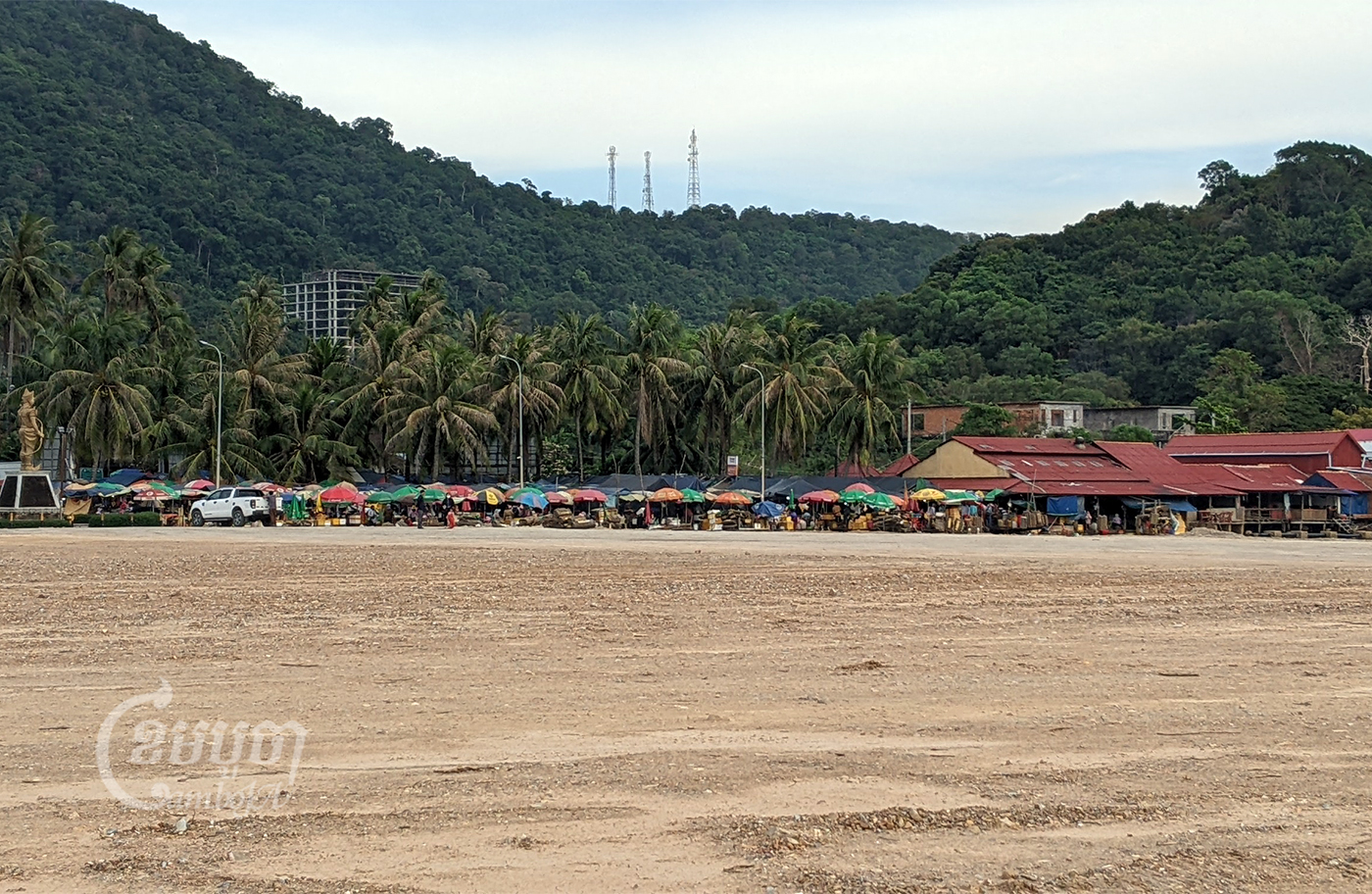
Reaksmey said that when the land was first filled in, vendors in Phsar Kdam had protested, but to no avail. He also said that he and other vendors? had not received any information about the construction of the beach. “It is said to have a beautiful beach, but they have not asked people.”
Responding to their concerns, Som Piseth, Governor of Kep Province, explained that all development projects have economic, social, and environmental impacts, but that the authorities have studied them and considered their negative effects against how profitable it would be for the country before making the decision to build.
Piseth said that if the beach project materializes, he expects more national and international tourists to visit, which will increase the tourism potential of Kep province, since the site of the landfill was not previously in use and offered no benefit.
“This place has not been used in the past, as the muddy area. Frankly, it is an abandoned area. So, after this project, we hope that national and international tourists will come to relax,” Piseth added.
He pointed out that the sand project is a state project approved by the Royal Government and implemented by the National Commission for Coastal Development of Cambodia, and insists that it will serve the public interest.
“It is a project that purely serves the public interest because that project is developed by filling in the additional 2,700 meters long, planting trees 50 meters wide, and filling in sand to the beach for 30 meters.”
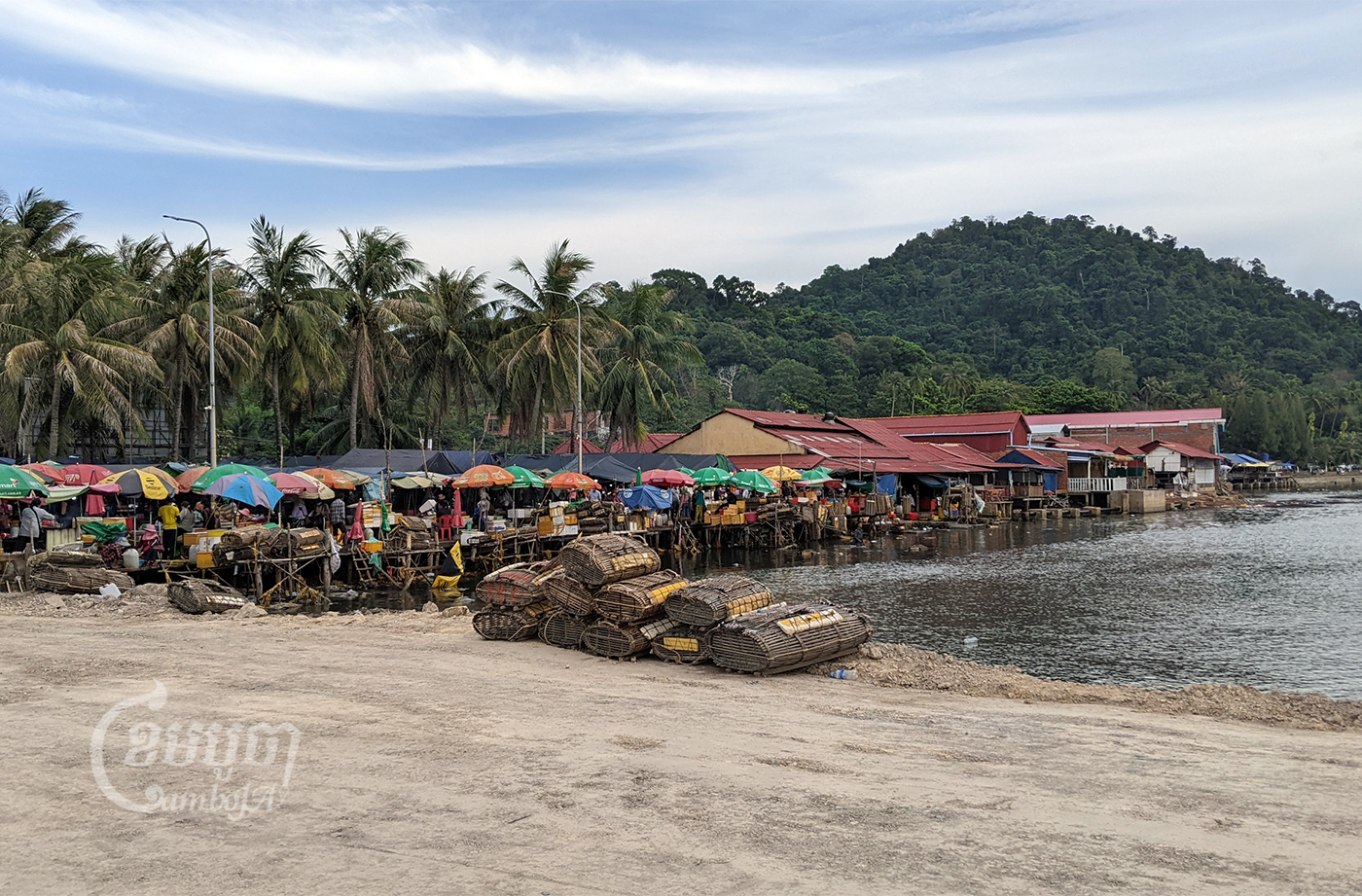
However, Out Latin, Project Coordinator of the Cambodian Youth Network Association (CYN), told CamboJA that people are worried about the loss of income and businesses because developments in the past which involved filling sea and rivers with sand, such as in Kampot or Kandal provinces, have not served the interests of the people, and were mostly done to benefit the investors.
“Once developed, it does not benefit the people much, because governments mostly like to give investment licenses to companies or people who have a lot of money to invest in developed areas, and it does not serve the public interest. The people who have the money collect money from the area,” he said.
Latin believes that if the development is to serve the people, the government should first publicize its plans so that the public can understand it and decide whether they find it acceptable. Secondly, he thinks the government should prepare other locations for vendors to carry out their business so they don’t risk losing their incomes.
The problem, he said, is that landfilling along beaches has mostly been done without the involvement of public and civil society organizations to assess their environmental impacts, which then created controversy between the developers and the people.
Ly Chandaravuth, an environmental activist, also said that a clear study over the coastal landfill should have been done and that people in that area should have been allowed to participate for the sake of social equality.
“When the soil is dumped into the sea, it causes muddy water. The crabs and fish will run away from there, so vendors at Phsar Kdam should have been allowed to participate in the decision to develop,” said the young activist.


